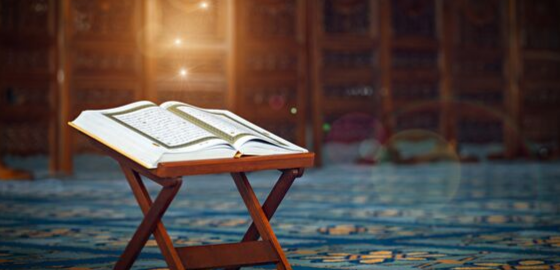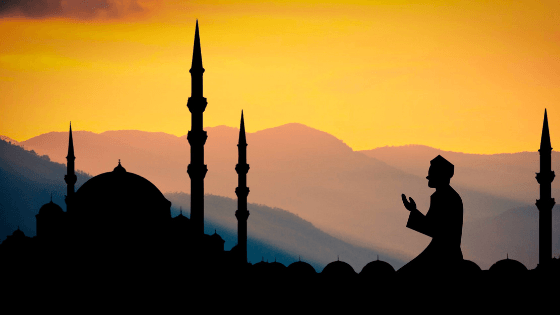Sūrah al-Aʿlā is a Makkan Surah comprised of nineteen verses. It is a short powerful poetic Sūrah that highlights some of the core themes of Makkan revelation; the Greatness of Allah, The Straight Path, and the Afterlife.
The Makkan Surahs focused on topics that were relevant to the pagans of Makkah. These tend to be short powerful verses aimed at getting the disbelievers to reflect and reconsider their position towards Islam. Makkan Surahs tend to be light on laws but heavy on theology. The goal of these verses is to convince the disbeliever of the superiority of Islam and the soundness of its beliefs.
But these verses also carry great value for Muslims. They are reminder of the core tenants of our religion. These verses remind us of the greatness of Allah and why He alone is worthy of worship. They remind us to focus on what really matters; preparing for the Afterlife. And they highlight for us the fundamental principles of our religion. Sūrah al-Aʿlā does all of this in nineteen short powerful verses.
Glorify the name of your Lord, the Most High (87:1)
The Sūrah begins with a command to praise Allah. Tasbīh is one of the most important and powerful forms of Zikr. The purpose of Tasbīh is to contemplate on the creations of Allah, or on the greatness of Allah, and then to praise Him for it. This creates in our heart awe and love for Allah, pushing us to worship Him better. It is highly recommended to make Tasbīh as many times a day as possible. Tasbīh means to say subḥānallāh (Glory be to Allah).
In this verse, Allah mentions one of His Beautiful Names, al-Aʿlā. The Sūrah is named after this powerful name of Allah. The name al-Aʿlā is usually translated as the Most High. It refers to the greatness of Allah and means that Allah is Perfect in every possible way. It denotes Perfection in His Attributes, Essence, and Actions. In this verse, Allah is calling upon us to contemplate His greatness and then to make Tasbīh after doing so.
This verse shows us the importance of the two major components of Zikr; remembering Allah with our tongues and contemplating on His Greatness with our hearts. Too often, we reduce Zikr to simply words that we say over and over again without understanding or reflection. While there is still reward in saying these words, there is far more benefit in verbal Zikr that is accompanied by deep reflection on what we are saying.
The four verses that follow continue this same theme, giving us more reasons to praise Allah and worship Him as Allah lists His favors upon us. He created us. He provides for us. And He guides us. All of these are reasons to glorify and worship Allah.
We will make easy for you the Easy Way. (87:8)
In the eight verse of this Sūrah, Allah refers to Islam as al-Yusrā (The Easy Way). This is a profound description of Islam that contradicts the idea many people have about Islam. Cultural baggage in many parts of the world have unnecessarily made Islam more difficult and complicated than it really is. A lot of laws and practices have been added to the religion that have no textual basis, making it seem like an overcomplicated, strict and uncompromising religion.
But Islam is not like this at all. When we study Fiqh, Quran or Hadith, one of the things that truly stands out is how simple and practical Islam really is. In many verses of the Quran and many Hadiths, Islam is referred to as the religion of ease. There are many principles in our religion that make it the most practical religion on earth.
In Islam, everything is permissible unless proven otherwise. The doors of forgiveness are always open. The law relaxes when life gets difficult. There are concessions for the travelers and the sick. Children are not held accountable for their deeds. People are considered innocent until proven guilty. The prohibited becomes permissible in unbearable circumstances. And so on. There are many other principles like this that make Islam a practical and simply way of life.
This verse is a reminder of this reality. Allah calls Islam the Easy Way. So if someone finds Islam difficult, either they are understanding it wrong or failing to understand the wisdom behind its laws. Either way, seeking Islamic knowledge can help reveal why Islam really is the Easy Way.
But you prefer the present life. Even though the Hereafter is better, and more lasting. (87:16-17)
The Sūrah concludes with a reminder to worship Allah and prepare for the Afterlife. This is followed by mentioning the primary reason why people don’t worship Allah; they are preoccupied by this world. We tend to focus on what is immediate and urgent, that which we can see the immediate consequences of. As a result, humans are often distracted from reflecting on the greatness of Allah, the purpose of life, and finding the true religion.
We are so caught up in seeking out the next promotion, the next sale, the next purchase, or the next meal, that we fail to prioritize our spirituality. In these verses, Allah is reminding us of that priority. The Afterlife must be prioritized over this world. We must make time daily for worshipping Allah and studying His religion. It makes no sense to prioritize this world over the next. This world is temporary and we will eventually leave it. After that, we will be in the next world forever. Shouldn’t the life that lasts forever be prioritized over that which is temporary?
When we get our priorities right, we will experience Barakah in our time. This will cause us to have enough time to fulfill our worldly goals as well. The principle we learn from this is that if we prioritize the next life, Allah will make this life easier for us. When you meet righteous Muslims, you will find that they tend to be more relaxed, have more free time, and are more content and happy than the average person. This is because they prioritized their Afterlife, so Allah made their worldly life easy for them.
To learn more Tafsīr, check out my Tafsīr ebook Themes of the Quran, currently on sale for the month of Ramadan.





